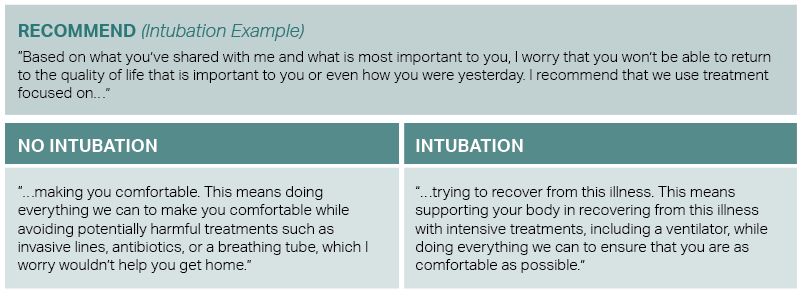
DR. ZIRULNIK is a second-year resident in the Harvard Affiliated Emergency Medicine Residency. DR. OUCHI is an Assistant Professor of Emergency Medicine at Brigham and Women’s Hospital/Harvard Medical School. DR. WANG is a palliative medicine specialist at Scripps Health in San Diego, California. DR. AARONSON is the Associate Chief Quality Officer at Massachusetts General Hospital, and an Emergency Medicine physician.
References
- Ouchi K, Lawton AJ, Bowman J, et al. Managing code status conversations for seriously ill older adults in respiratory failure. Ann Emerg Med. 2020;76(6):751-756.
- Wang DH. Beyond code status: palliative care begins in the emergency department. Ann Emerg Med. 2017;69(4):437-443.
- Bernacki R, Paladino J, Neville BA, et al. Effect of the serious illness care program in outpatient oncology: a cluster randomized clinical trial. JAMA Intern Med. 2019;179(6):751-759.
- Ouchi K, George N, Revette AC, et al. Empower seriously ill older adults to formulate their goals for medical care in the emergency department. J Palliat Med. 2019;22(3):267-273.
- Aaronson EL, Greenwald JL, Krenzel LR, et al. Adapting the serious illness conversation guide for use in the emergency department by social workers. Palliat Support Care. 2021;1-5.
- Lamba S, Pound A, Rella JG, et al. Emergency medicine resident education in palliative care: a needs assessment. J Palliat Med. 2012;15(5):516-520.
- Rubin EB, Buehler AE, Halpern SD. States worse than death among hospitalized patients with serious illnesses. JAMA Intern Med. 2016;176(10):1557-1559.
Pages: 1 2 3 | Single Page





No Responses to “Tips for Mastering the Crucial Skill of Rapid Code Status Conversations”